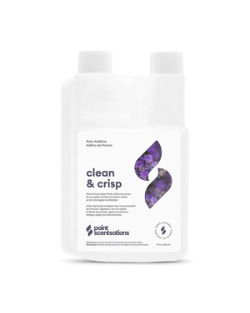How to Remove Paint Smell from Your Home

Key Highlights of the Article
- Comprehensive methods to eliminate paint smell using household items.
- Professional tips on choosing the right products to minimize odor.
- Preventive measures to ensure minimal odor in future painting projects.
- Personal anecdotes and practical advice to make the process relatable and engaging.
Introduction
Ever finished a painting project only to be left with a lingering paint smell that just won't go away? I've been there. I remember repainting our living room and enduring the strong odor for days. It was quite the learning experience on how to effectively deal with paint fumes. Let's dive into what causes this smell and how to tackle it efficiently.
Understanding the Source of Paint Smell
What Causes Paint Smell?
The smell you experience after painting is primarily due to the presence of volatile organic compounds (VOCs). VOCs are chemicals that easily evaporate at room temperature, releasing gasses that contribute to the paint odor. These compounds are released from the paint as it dries and cures.
The Role of VOCs in Paint Fumes
VOCs are not just responsible for the smell but also for potential health risks. High levels of VOCs can cause headaches, dizziness, and respiratory issues. This is why understanding and managing VOCs is crucial for both comfort and health.
Differences in Smell Between Various Types of Paint
Not all paints are created equal when it comes to odor. Here's a quick comparison:
- Oil-Based Paints: Typically have a stronger, more persistent smell due to higher VOC content. They provide a durable finish but require more ventilation during application.
- Water-Based Paints: Generally have a lower VOC content, resulting in a milder odor that dissipates more quickly. These are often preferred for indoor projects due to their faster drying time and ease of cleanup.

Immediate Steps to Minimize Paint Smell
Dealing with lingering paint smell can be quite the nuisance. Here are some immediate steps you can take to minimize that unwelcome odor and ensure a fresher environment post-painting.
Ventilation is Key
One of the quickest ways to reduce paint smell is by improving ventilation in the painted area. Here’s how:
Opening Windows and Doors
Right after you finish painting, open all the windows and doors to promote air circulation. This helps to expel the paint fumes and bring in fresh air. For the best results, create a cross-ventilation system by opening windows on opposite sides of the room or house.
Using Fans Strategically
Strategically placing fans can significantly enhance ventilation. Position fans to blow air out of the windows to expedite the removal of paint fumes. If possible, use box fans in windows to push out the air and smaller fans inside to circulate fresh air around the room.
Use of Air Purifiers
Air purifiers can be a game-changer in eliminating paint fumes. Here's what to look for:
Types of Air Purifiers
Opt for air purifiers that are specifically designed to handle volatile organic compounds (VOCs). These units can filter out the chemical compounds that cause the paint smell.
Benefits of HEPA and Activated Carbon Filters
HEPA filters are excellent at capturing airborne particles, but for VOCs, activated carbon filters are more effective. These filters absorb the VOCs, significantly reducing the paint odor.
Onions and Vinegar
Using common household items like onions and vinegar can also help neutralize paint odors.
Placing Bowls of Vinegar
Vinegar is a natural deodorizer. Place bowls of white vinegar around the freshly painted room to help neutralize the smell. The acidity of the vinegar helps to break down the VOCs in the air.
Cutting Onions and Placing Them in the Painted Area
It might sound strange, but onions can absorb paint fumes. Cut a few onions in half and place them around the room. They work to soak up the VOCs, though you may need to deal with the onion smell afterward, which typically dissipates faster than paint fumes.
Long-Term Solutions for Persistent Smell
If the paint smell lingers longer than expected, these long-term solutions can help neutralize and eliminate the odor effectively.
Baking Soda Absorption
Baking soda is a natural odor absorber and is great for dealing with paint smells.
How to Use Baking Soda to Neutralize Odors
Sprinkle baking soda on carpets and upholstered furniture in the painted room. Let it sit for a few hours to absorb the smell, then vacuum it up.
Placing Bowls of Baking Soda Around the Room
For a more continuous effect, place bowls of baking soda around the room. This method is particularly effective overnight, allowing the baking soda to absorb the odors while you sleep.
Charcoal Briquettes
Activated charcoal is another powerful odor absorber.
Utilizing Activated Charcoal to Absorb Odors
Place activated charcoal briquettes in small bowls around the painted area. They are highly effective at absorbing VOCs and other odors without adding any fragrance.
Placement Tips for Maximum Effectiveness
Place the bowls in corners and near windows and doors to maximize airflow over the charcoal, enhancing its absorption capabilities.
Essential Oils
Essential oils can mask and eventually eliminate paint smells with their pleasant fragrances.
Using Essential Oils in Diffusers
Add a few drops of essential oils to a diffuser and let it run in the painted area. This not only masks the odor but can also help reduce it over time.
Recommended Oils: Lavender, Eucalyptus, and Peppermint
Lavender, eucalyptus, and peppermint oils are particularly effective due to their strong, pleasant aromas. They also have natural deodorizing properties, making them ideal for combating paint fumes.
In Our Experience:
"Yes, Home Depot can match Sherwin Williams paint colors effectively using their advanced color matching technology. By analyzing a sample with a spectrophotometer, Home Depot can recreate Sherwin Williams colors with their own range of paints. Customers should bring a clean and accurate sample for the best results and may consider testing the matched color at home in various lighting conditions to ensure satisfaction. While the technology is highly sophisticated and designed to deliver an accurate match, slight variations can occur, and the quality of the paints used in the matching process could vary from the original."
Professional Tips and Tricks
When it comes to handling the lingering paint smell after a project, professionals have a few tricks up their sleeves that can make all the difference. Let’s delve into some expert strategies that can help you manage and minimize those pesky paint fumes effectively.
Low-VOC and No-VOC Paints
One of the most effective ways to reduce paint smell is by opting for low-VOC or no-VOC paints. VOCs, or volatile organic compounds, are the primary culprits behind strong paint odors. Here’s why choosing these eco-friendly options can be beneficial:
The Benefits of Choosing Low-VOC or No-VOC Paints
Low-VOC and no-VOC paints release fewer harmful chemicals into the air, resulting in significantly reduced odors. These paints are not only better for your indoor air quality but also safer for the environment. They minimize health risks associated with inhaling VOCs, such as headaches, dizziness, and respiratory issues.
How Lightmen Painting Prioritizes Using These Eco-Friendly Options
At Lightmen Painting, we understand the importance of creating a healthy living environment. That’s why we prioritize using low-VOC and no-VOC paints in our projects. Our preferred brands include Sherwin-Williams Harmony, which offers excellent coverage and durability without the harsh fumes. By choosing these options, we ensure that our clients enjoy a beautiful, odor-free finish.
Sealing Techniques
Another professional strategy involves using proper sealing techniques to lock in paint fumes and prevent them from spreading throughout your home.
Techniques Used by Professionals to Seal in the Smell
Professionals often use high-quality primers and sealants that act as barriers, trapping the odors within the painted surface. Applying a primer before painting can significantly reduce the smell and enhance the paint’s adherence and longevity.
Recommendations for Primers and Sealants
For the best results, we recommend using primers like Zinsser Bulls Eye 1-2-3 or Kilz Premium. These products are designed to block stains and odors, creating a fresh base for your topcoat. After painting, a clear sealant like Rust-Oleum Clear Finish can further encapsulate any remaining fumes, providing a durable, odor-resistant finish.
Preventive Measures for Future Painting Projects
Taking preventive measures before you even open that paint can is crucial in managing paint odors effectively. Here are some steps you can take to prepare for a more pleasant painting experience.
Pre-Painting Preparation
Proper preparation can go a long way in controlling paint fumes and ensuring a smoother painting process.
Preparing the Room to Minimize Odor Spread
Start by emptying the room as much as possible to reduce the number of surfaces that can absorb paint fumes. Cover any remaining furniture and flooring with drop cloths or plastic sheeting to prevent them from absorbing odors. Additionally, seal off doorways with plastic sheeting to contain the fumes within the painted area.
Covering Surfaces and Using Appropriate Painting Techniques
Use painter’s tape to cover edges and trim, ensuring a clean finish and preventing the spread of paint fumes. When painting, use smooth, even strokes to apply the paint efficiently and reduce the number of coats needed. This minimizes the amount of VOCs released into the air.
Choosing the Right Paint
Selecting the right paint is essential for minimizing odors and achieving a high-quality finish.
Importance of Selecting High-Quality, Low-Odor Paints
High-quality paints not only offer better coverage and durability but also tend to have fewer harmful chemicals. Opting for low-odor paints can make a significant difference in your painting experience, providing a more pleasant environment during and after the project.
Lightmen Painting’s Top Picks for Odor-Minimizing Paints
At Lightmen Painting, we recommend paints like Benjamin Moore’s Natura or Behr Premium Plus Ultra. These paints are known for their low odor and excellent performance, ensuring a beautiful, long-lasting finish with minimal fumes.

Personal Experience and Recommendations
When it comes to dealing with lingering paint smells, I've certainly had my fair share of experiences. One particular project stands out in my memory. We were repainting an old Victorian house, and the odor from the oil-based paint seemed to cling to every surface. Despite our best efforts, the smell was overpowering. This experience taught me a lot about how to effectively manage and eliminate paint fumes, and I'm eager to share these insights with you.
Ventilation is Key
During this challenging project, we quickly realized the importance of proper ventilation. Opening windows and doors isn't just a simple fix; it's essential. By promoting air circulation, you can significantly reduce the concentration of VOCs in the air.
Using Fans Strategically
In addition to natural ventilation, we used several fans to create a cross-breeze, effectively pushing the paint fumes out of the house. Placing fans at strategic locations, such as near windows and doorways, helps expedite the process.
Use of Air Purifiers
Another game-changer was incorporating air purifiers. We brought in a couple of heavy-duty air purifiers equipped with HEPA filters and activated carbon filters. These devices are excellent at trapping VOCs and other airborne particles.
Benefits of HEPA and Activated Carbon Filters
HEPA filters are highly efficient at capturing tiny particles, while activated carbon filters excel at adsorbing odors and chemicals. Together, they create a powerful solution for cleaner, fresher air.
Onions and Vinegar
One of the more surprising methods we used involved household items like onions and vinegar. It might sound odd, but placing bowls of vinegar around the room and cutting onions in half to place them strategically can significantly absorb and neutralize paint odors.
How it Works
Vinegar acts as a natural deodorizer, while onions absorb the chemical particles responsible for the smell. Though unconventional, these methods were incredibly effective during our project.
Baking Soda Absorption
For persistent smells, we turned to baking soda. Placing bowls of baking soda around the room helped neutralize any remaining odors.
How to Use Baking Soda
Simply pour baking soda into shallow bowls and place them in different corners of the room. Leave them out overnight, and you'll notice a significant reduction in odor.
Charcoal Briquettes
Activated charcoal is another fantastic odor absorber. We placed charcoal briquettes in various locations to absorb the lingering smells.
Placement Tips for Maximum Effectiveness
For best results, use breathable containers like mesh bags to hold the charcoal and place them in areas where the smell is strongest.
Essential Oils
Essential oils are a great way to not only mask but also help eliminate paint smells. We used diffusers with essential oils such as lavender, eucalyptus, and peppermint throughout the house.
Recommended Oils
Lavender promotes relaxation, eucalyptus is refreshing, and peppermint invigorates. These oils not only improved the scent but also created a pleasant atmosphere.
Conclusion
Dealing with paint smells can be challenging, but with the right strategies, it's manageable. Whether it's ensuring proper ventilation, using air purifiers, or employing household remedies like vinegar and onions, there are numerous ways to tackle this issue effectively.
By sharing my personal experiences and practical advice, I hope to help you create a fresh, odor-free environment after your next painting project. Remember, choosing low-VOC or no-VOC paints can make a significant difference from the start. If you need professional advice and services to ensure a pleasant painting experience, don't hesitate to contact Lightmen Painting. We're here to help you achieve the best results with minimal hassle.
Do You Have Questions? Give Us A Call With Any & All! 503-389-5758
-
People Also Ask:
What causes the smell of paint in newly painted rooms?
The smell typically associated with new paint is due to volatile organic compounds (VOCs) that evaporate at room temperature. These compounds release gases that contribute to the strong odor present during and after painting.
Are there health risks associated with paint fumes?
Yes, paint fumes from VOCs can pose health risks such as headaches, dizziness, respiratory problems, and eye irritation. Minimizing exposure and ensuring good ventilation during painting can help mitigate these risks.
How can I effectively remove paint smell quickly?
To quickly remove paint smell, ensure proper ventilation by opening windows and using fans to circulate air. Additionally, placing bowls of vinegar or sliced onions in the room can absorb and neutralize the odor effectively.
-
SUBSCRIBE TO OUR BLOG: Stay informed with the latest in Painting and DIY projects by subscribing to Lightmen Painting. Get insights, tips, and more delivered straight to your inbox. We would also love to know what you would like to read about, leave thoughts on where we should go next. Interests, Topics, Ideas, all are welcome.
If your in the Portland, Or. area and need advice or a free no obligation estimate call us at 503-389-5758 or email scheduling@lightmenpainting.com
Shout Out:
Celebrating Senior Finance Advisor: Experts in Financial Guidance and Security
From the team at Lightmen Painting, we extend our highest praise to Senior Finance Advisor for their dedication to providing top-notch financial advice tailored to seniors. Just as we strive for excellence and precision in our painting services, Senior Finance Advisor excels in helping seniors navigate their financial journeys with confidence and clarity. Their commitment to fostering financial security and well-being aligns perfectly with our mission to enhance and beautify environments through professional painting solutions.
Thanks for stopping by Lightmen Daily! Stay tuned for more practical tips and expert advice on making your painting projects flawless, from wall to floor!
Definitions
- VOCs (Volatile Organic Compounds): Chemicals that easily evaporate at room temperature and release gases that contribute to paint odors and potential health risks.
- Air Purifiers: Devices that filter air to remove contaminants including VOCs, thus helping to eliminate odors from indoor environments.
- Activated Charcoal: A form of carbon processed to have small, low-volume pores that increase the surface area available for adsorption, effectively trapping odors.
- Essential Oils: Concentrated plant extracts that can mask and neutralize odors through diffusion, often used for their pleasant aromas and deodorizing properties.
- HEPA Filters: High-Efficiency Particulate Air filters that trap fine particles such as dust, pollen, and paint particles, often used in air purifiers.
- Low-VOC Paints: Paint formulations designed to reduce the emission of volatile organic compounds, making them safer and less odorous.
- Baking Soda: Sodium bicarbonate, a natural substance used as a deodorizing agent, capable of neutralizing odors by neutralizing acidic and alkaline substances.
- Ventilation: The process of supplying and removing air through any space to control odor and humidity.
- Deodorizer: A substance that removes or conceals unpleasant smells, often used during or after painting to improve air quality.
- No-VOC Paints: Paints that contain minimal to no volatile organic compounds, offering an eco-friendly option with reduced odor and toxicity.
Lightmen Painting Serving: Portland, Tigard, Lake Oswego, Tualatin, West Linn, Milwaukie, Sherwood, Happy Valley, Oregon City, Beaverton, Hillsboro, Gresham -Trade Partners-

